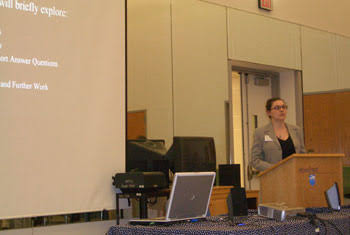Coping Ahead: What to do when you feel like you can’t do anything
This post is about my personal experience with physical health problems, and does not necessarily reflect the unique needs of other individuals with similar issues.
I have fibromyalgia, arthritis, and a body that doesn’t cooperate with me as much as I’d like. At the same time, I work a full time job and run my own small business, while maintaining as active a lifestyle as I can manage. First of all, everyone is different. There are days where I actually, literally, cannot move. For some people with fibromyalgia or other similar illnesses, this is most days. Many people ask me how I manage full-time physical health problems while I manage my other responsibilities. The short answer is a skill called “Coping Ahead”. A lot of people do may use this skill without realizing it (including my grandmother, who suffers with several of the same conditions I do). Coping ahead is skill that almost anyone with fibromyalgia or a similar illness can use to help themselves on their worst days.
So, what is coping ahead? The “cope ahead” strategy is used in Dialectical Behavioral Therapy work to help people prepare themselves for situations that make them emotionally or mentally uncomfortable. So, for example, if I have to have an uncomfortable conversation with a client or a supervisor, I can cope ahead by thinking about my key points, anticipating sticky responses, and thinking of ways to respond to pushback while maintaining my points and my values. I don’t know how the other person will respond to the conversation, but preparing my response and can help me stay focused and achieve a mutually beneficial outcome from a potentially difficult interaction.
I’ve found that coping ahead is also extremely useful as I manage an unpredictable physical problem like fibromyalgia. People with illnesses like fibromyalgia can often find the unpredictability of symptoms very physically, emotionally, and mentally disruptive. During the first year before my diagnosis, I was constantly frustrated and angry, as I couldn’t plan sometimes even an hour in advance. I didn’t know what my body would decide to from one moment to the next. At the same time, I was working full time and taking 15 credits a semester for my masters degree. Every unexpected turn caused me turmoil.
Over time (when I say time, I mean years), I’ve discovered different strategies to help me cope with my fickle body. I’ve always been a list-maker and planner. Yet, on a “foggy” fibro day, sometimes I have difficulty to even find the words I need to finish a sentence. Thinking clearly enough to make a list is sometimes not an option. That doesn’t make working, paying bills, or doing household tasks easy. To cope ahead for the inevitable “fibro fog”, I use a strategy similar to the epic/story/task strategy in software development. In my planner (I use GoodNotes on my ipad for this kind of planning), I have a notebook for everything that I need to do to make my life work: house, bills, teaching, writing, job, business, etc. In each of those notebooks, I have a list of projects. Each project gets one page. Some of the projects seem like silly things to make a checklist for – say, cleaning the closet, or making flashcards. But I do make task lists for each project, and sometimes I break it down further with subtasks if the task is complex.
Frequently, I can go through my day without referencing my planner. However, on a mental “fibro” day, it can be difficult for me to even decide where to start on my to-do list. On those days, I can check my planner and use my planning from the good days to help set me on autopilot for bad ones. I have coped ahead for what otherwise can be distressing, and this strategy has helped me so many times!
From a physical standpoint, coping ahead means traveling with mobility aids, so that when my body decides to quit, I am prepared to deal with the aftermath. For a long, LONG, long time, I wouldn’t use mobility aids at all. After my friend and co-worker Cori pointed out that I needn’t feel shame for using mobility aids, I began to carry them with me, and to request assistance for long-distance travel. The direct result was much more ease and comfort during the trip, with far fewer symptoms once I arrived at my destination. There are a lot of reasons I was stubborn about coping ahead this way, ranging from external judgements, to my own internalized sense of ableism telling me that I “should” be able to do everything on my own. By making the decision to work on my shame and overcome the ableist thoughts in my head, I have been able to cope ahead successfully, and travel changed for the better. Even today, when I need to use mobility aids for shopping or moving around my building, I sometimes feel the twinge of shame, but when I am not in pain and can walk for extended periods of time, it reminds me that coping ahead with my mobility aids is helpful, and that my shame is not justified.
This is my experience using coping ahead as a strategy for physical health issues. I have also used it to help me face difficult conversations, or even anxiety around potentially stressful interactions. If you have times where you feel that you have high anxiety around an unpredictable physical, emotional, or mental situation, I recommend using the cope ahead skill to help ease the stress. You can learn more about what the skill is, and isn’t, at the following:





